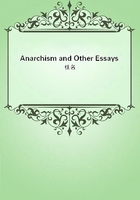Consequently, the result must be the same to us whether that which weperceive be the Unknowable itself, or an effect invariably wrought on usby the Unknowable. If, under certain conditions furnished by our constitutions,some Power of which the nature is beyond conception, always produces a certainmode of consciousness -- if this mode of consciousness is as persistent aswould be this Power were it in consciousness; the reality will be to consciousnessas complete in the one case as in the other. Were Unconditioned Being itselfpresent in thought, it could but be persistent; and if, instead, there isBeing conditioned by the forms of thought, but no less persistent, it mustbe to us no less real.
Hence there may be drawn these conclusions: -- First, that we have anindefinite consciousness of an absolute reality transcending relations, whichis produced by the absolute persistence in us of something which survivesall changes of relation. Second, that we have a definite consciousness ofrelative reality, which unceasingly persists in us under one or other ofits forms, and under each form so long as the conditions of presentationare fulfilled; and that the relative reality, being thus continuously persistentin us, is as real to us as would be the absolute reality could it be immediatelyknown. Third, that thought being possible only under relation, the relativereality can be conceived as such only in connexion with an absolute reality;and the connexion between the two being absolutely persistent in our consciousness,is real in the same sense as the terms it unites are real.
Thus then we may resume, with entire confidence, those realistic conceptionswhich Philosophy at first sight seems to dissipate. Though reality underthe forms of our consciousness is but a conditioned effect of the absolutereality, yet this conditioned effect standing in indissoluble relation withits unconditioned cause, and being equally persistent with it so long asthe conditions persist, is, to the consciousness supplying those conditions,equally real. Much as our visual perceptions, though merely symbols foundto be the equivalents of tactual perceptions, are yet so identified withthose tactual perceptions that we appear actually to see the solidity andhardness which we do but infer, and thus conceive as solid objects what areonly the signs of solid objects; so, on a higher stage, do we deal with theserelative realities as though they were the actual existences instead of effectsof the actual existences. And we may legitimately continue so to deal withthem as long as the conclusions to which they help us are understood as relativeand not absolute.
This general conclusion it now remains to interpret specifically in itsapplication to each of our ultimate scientific ideas. §47(*) We think inrelations. We have seen (Chap. iii. Part I) that ultimate modes of beingcannot be known or conceived as they exist in themselves; that is, out ofrelation to our consciousness. We have seen, by analyzing the product ofthought, that it always consists of relations, and cannot include anythingdeeper than the most general of these. On analyzing the process of thought,we found that cognition of the Absolute is impossible, because it presentsneither relation nor its elements -- difference and likeness. And lastly,it was shown that though by the relativity of our thought we are eternallydebarred from knowing or conceiving Absolute Being; yet that this very relativityof our thought, necessitates that vague consciousness of Absolute Being whichno mental effort can suppress. That relation is the universal form of thought,is thus a truth which all kinds of demonstration unite in proving. By thetranscendentalists, certain other elements of consciousness are regardedas forms of thought, or more strictly of intuition, which is the ultimatecomponent of thought. While relation would of necessity be admitted by themto be a universal mental form, they would class with it two others as alsouniversal. Were their doctrine otherwise tenable, however, it must stillbe rejected if such alleged further forms are interpretable as generatedby the primary form. If we think in relations, and if relations have certainuniversal forms, it is manifest that such universal forms of relations willbecome universal forms of consciousness. And if these further universal formsare thus explicable, it is superfluous, and therefore unphilosophical, toassign them an independent origin. Now relations are of two orders -- relationsof sequence, and relations of coexistence; of which the one is original andthe other derived. The relation of sequence is given in every change of consciousness.















